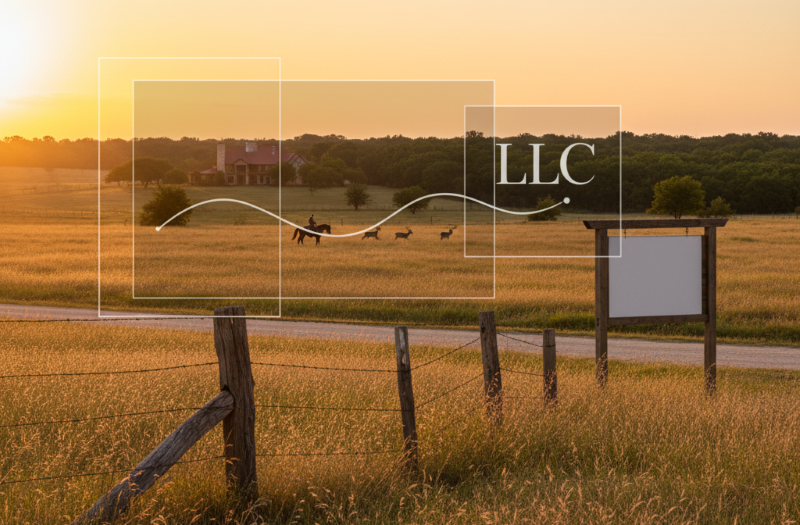
Using a Single-Purpose LLC and a Lease Structure to Separate Risk
Owning rural land in Texas and leasing it for hunting can be a great income stream — but it also comes with serious risk. Hunting operations combine firearms, vehicles, alcohol, dogs, and unpredictable wildlife. One accident could lead to a lawsuit that puts your land — and your personal assets — in jeopardy.
Fortunately, Texas landowners can minimize risk by separating the land ownership from the hunting business. The most common strategy is to form a single-purpose limited liability company (LLC) to hold the real estate and then lease it to a separate entity that runs the hunting operation.
Why Create a Single-Purpose LLC for the Land
A single-purpose LLC (often called an “SPE”) is a company formed solely to own and hold a single property. It doesn’t guide hunts, sell memberships, or take guests into the field. Its only job is to own the dirt.
Benefits of this approach:
- Strong Liability Protection: If an injury happens during a hunt, lawsuits typically target the operating company — not the LLC that merely owns the property.
- Asset Preservation: By isolating the land, you make it harder for a judgment creditor to reach the real estate if the hunting business is sued.
- More Flexible Tax Elections: LLC members have more options when deciding which tax structure might benefit them. For example, members may choose to elect C-Corp or S-Corp status for their LLC.
Texas law provides robust liability protections for LLC owners, making this structure highly effective when maintained properly.
How the Lease Structure Works
Once you’ve formed the Land-Holding LLC, it signs a written lease with the Operating LLC (the business running hunts and guiding guests). This lease does more than set rent — it’s a liability shield.
Key lease terms should include:
- Rent Structure: Fixed, percentage-based, or hybrid (e.g., base rent + percentage of hunting fees).
- Insurance Requirements: The operating company must carry hunting liability insurance and list the landowner LLC as an additional insured.
- Indemnification: The operating company promises to cover (indemnify) the landowner LLC if claims arise from hunting activities.
- Safety & Maintenance: Spell out who maintains fences, roads, blinds, and how risk (e.g., ATV use, alcohol) is managed.
This lease creates a clear legal wall between the property owner and the business taking hunters onto the land.
Insurance Is Still Critical
Even with a strong entity structure, insurance is non-negotiable. Both LLCs should be properly insured:
- Operating Company: Commercial general liability & specialized hunting liability coverage.
- Land-Holding LLC: Seek out insurance custom tailored for landlords leasing property for entertainment, hunting and wildlife operations.
- The Land-Holding LLC should be listed as an additional insured on the operating company’s policy.
Additional Risk-Reduction Strategies
- Guest Waivers: Have every hunter sign a release acknowledging risks and waiving claims.
- Safety Rules: Written policies on alcohol, firearms, and ATV use can reduce exposure.
- Annual Review: As your business grows — e.g., adding lodging or guided hunts — revisit your entity and insurance setup.
Bottom Line
If you’re using Texas land for hunting, don’t put your property and personal wealth on the line. Create a single-purpose LLC to hold the land, lease it to a separate operating LLC, and back it up with strong leases and insurance. With proper structure and planning, you can enjoy the financial and personal benefits of hunting activities while protecting the land you worked hard to own.
All information provided on Silblawfirm.com (hereinafter "website") is provided for informational purposes only, and is not intended to be used for legal advice. Users of this website should not take any actions or refrain from taking any actions based upon content or information on this website. Users of this site should contact a licensed Texas attorney for a full and complete review of their legal issues.
